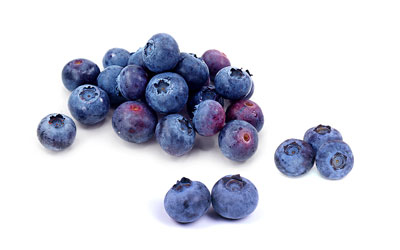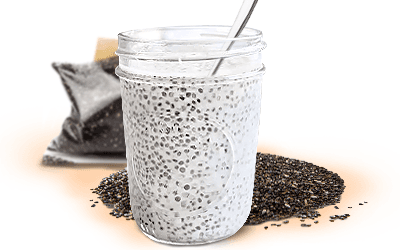A research team at the University of Cincinnati Academic Health Center, led by Robert Krikorian, PhD, conducted two human studies to follow up on earlier clinical trials that have shown the positive effect of blueberries on the human brain, particularly improving memory in older people. What they have found corroborates and reinforces those previous studies, putting science one step closer to effectively fighting Alzheimer's disease, which currently affects 5.3 million people in the U.S. alone.
The Studies
One of the studies showed significant improvement in cognitive functions among 47 adults aged 68 and older who previously had mild cognitive impairment, a risk factor for Alzheimer's disease. They were given daily doses of either freeze-dried blueberry powder (comparable to a cup of berries) or a placebo powder.
The subsequent study was conducted on 94 people, from 62 - 80 years old, divided into four subgroups. None of them had full-blown Alzheimer's, but they felt their cognitive functions were deteriorating. The groups received blueberry powder, fish oil, fish oil with blueberry powder, or placebo.
The Results
In the first study, the results were noticeable after 16 weeks. Krikorian says, "The blueberry group demonstrated improved memory and improved access to words and concepts." The subjects were also submitted to a functional magnetic resonance imaging (fMRI) examination. The differences between the group who was given the placebo and the group who ingested the blueberry powder were outstanding.
In the second study, the results weren't as strong as in the first one. Those who received blueberry powder or fish oil experienced a small memory improvement, but the results of the fMRI weren't remarkable on the ones that got the blueberry powder. Krikorian theorizes that these results are due to the minor cognitive issues of the study group.
What Does This Mean?
Although inconclusive, these outcomes show that the consumption of blueberries in patients with cognitive impairment can be highly effective, but the effects may not be as noticeable for those with less-severe memory issues or among the ones without any cognitive problems.
However, as the results were promising, the team is planning to conduct further studies in younger people, from 50 - 65 years old, and those who have additional health issues, such as obesity, high blood pressure, or high cholesterol, in order to determine whether blueberries could be of use in precluding signs of Alzheimer's.
This research was presented at the 251st National Meeting & Exposition of the American Chemical Society (ACS).
Sources
- American Chemical Society, 251st National Meeting & Exposition






